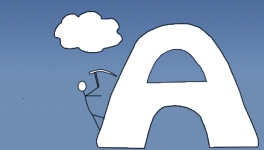« Tv-links.co.uk shut down | Main | Huckabee is Mistaken »
Nobel Theory, File Sharing and Social Networking
By Chris | October 21, 2007
TorrentFreak reports that researchers at Harvard are using mechanism design theory to create an improved BitTorent file-sharing client. BitTorent is a peer-to-peer file sharing protocol that breaks files into little bits, which are then shared based on reciprocity with other users. For a succinct and clear explanation, check this link out. The current BitTorent protocol exchanges data with others offering something in exchange which, while preventing free-riding, faces traditional game theory problems. In addition to creating a system that promotes an efficient use of bandwidth, the researchers are examining how to best maximize the social dimensions of file sharing.
I think that mechanism design theory and other areas of economics have the potential to improve social networking sites such as Facebook and MySpace. Administrative decisions about privacy and the introduction of outside applications have complicated and far reaching effects . Facebook introduced a News Feed last year that alerted users when friends had updated their profiles. This change was met by an outcry from users complaining that their privacy had been violated. The problem with the News Feed was an economic one, everyone wanted to easily check for updates of friends’ profiles, but no one wanted their every move scrutinized. Facebook relented and allowed users to opt-out of the feed. It has also taken a strictly voluntary approach to the introduction of “apps” created by independent developers.
The voluntary dissemination of information protects users’ privacy but it also creates suboptimal outcomes. So many people opted out of the News Feed that it is virtually worthless as an informative tool. Other friends can still scrutinize your every move, it just takes longer. An aggregater that provides targeted, useful information is likely a positive thing. Unfortunately, an incentive structure that encourages users to share information that costs them little and offers others a lot is logistically difficult. But, with millions of dollars at their disposable and control over the environment that real world regulators can only dream of, I wouldn’t be surprised if Facebook and MySpace can solve prisoner’s dilemmas that plague the real world.
Topics: Web 2.0 | No Comments »


